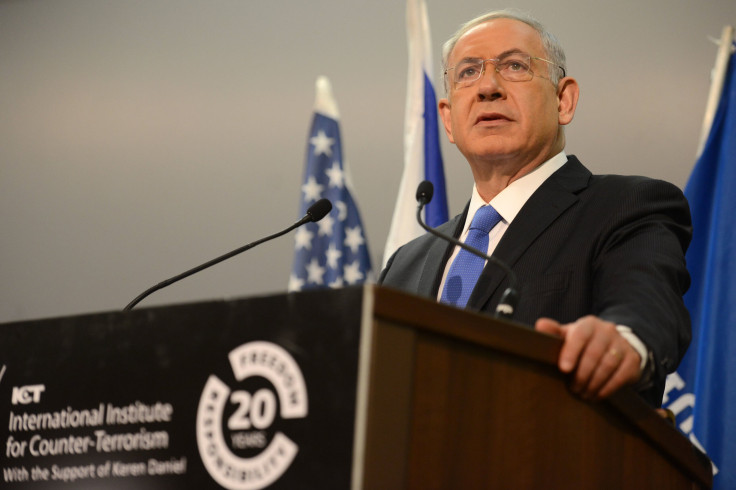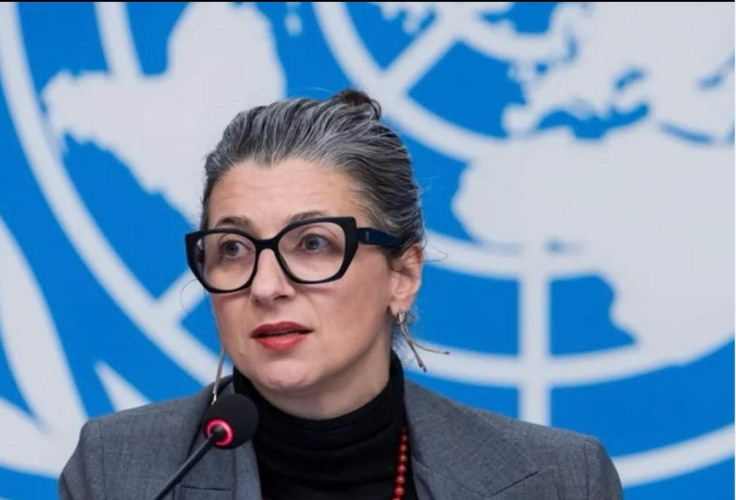Ceasefire Collapses: Israel Orders 'Powerful' Strikes on Gaza
Explosions rocked Gaza on Tuesday after Israeli Prime Minister Benjamin Netanyahu ordered the military to carry out 'powerful' strikes following alleged ceasefire violations.

The three-week-old truce between Israel and Hamas, intended to stabilise the territory after weeks of devastating violence, is showing signs of rapid erosion.
Renewed Israeli strikes on Gaza highlight the fragility of the ceasefire, while internal rivalries within Hamas and lingering tensions from the October attacks are creating both operational and humanitarian pressures.
According to a Reuters report, the situation raises questions about whether temporary agreements can be maintained amid such overlapping challenges.
Immediate Military Response
Israeli Prime Minister Benjamin Netanyahu ordered 'powerful' strikes after reports that Hamas had targeted Israeli forces in southern Gaza.
Explosions were witnessed across Gaza City and Deir al-Balah, with tank fire audible in areas under Israeli control.
Gaza's Civil Defence, affiliated with Hamas, confirmed at least nine fatalities and multiple injuries during the strikes.
Hamas denied attacking Israeli forces and postponed a planned handover of a deceased hostage, citing Israeli obstruction in recovery efforts.
The strikes also reportedly hit areas near Al-Shifa Hospital, underscoring the continued vulnerability of civilians in densely populated zones.

Internal Weaknesses Amplify the Crisis
The renewed escalation comes as Hamas faces 'internal challenges', underscored by rising clan militias such as the Doghmush and Al-Majayda families, who are increasingly armed and asserting territorial control.
These internal power struggles have long undermined Hamas's ability to maintain cohesion, enforce order, and manage Gaza's security infrastructure.
The renewed Israeli strikes intensify these pressures, complicating military coordination and stretching resources thin.
Efforts to locate and recover the bodies of hostages have been disrupted, illustrating how external attacks magnify the operational difficulties caused by internal fragmentation. The simultaneous burden of external conflict and internal rivalries highlights Hamas's vulnerability and underscores the fragility of its control over Gaza.
Beyond operational challenges, these overlapping crises have political and humanitarian consequences.
As Hamas grapples with external strikes and internal dissent, its legitimacy is increasingly questioned by Gazans already facing prolonged hardship.
Rival militias may exploit this instability, consolidating local power and undermining central authority, which could have lasting implications for governance, civilian safety, and the broader security landscape of the territory.
In effect, Hamas's predicament is multi-layered: military responses, civilian protection, hostage recovery, and political authority are all under strain simultaneously, creating a volatile environment in which missteps could intensify both internal unrest and external escalation.

Hostages and Humanitarian Concerns
Tensions over hostages remain a key trigger for renewed violence. The ceasefire had previously enabled the release of all 20 living hostages in exchange for nearly 2,000 Palestinian prisoners, yet 13 deceased hostages remain in Gaza.
Israel has accused Hamas of mishandling their remains, while Hamas blamed logistical constraints caused by rubble and ongoing Israeli strikes.
The unresolved situation has heightened humanitarian concerns. United Nations Special Rapporteur Francesca Albanese, speaking to Sky News, described the crisis as an 'ongoing genocide', criticising Israel for military operations in densely populated areas.
Civilians, particularly around hospitals and residential neighbourhoods such as those near Al-Shifa Hospital, remain highly vulnerable, with limited protection from the renewed escalation.
Regional and International Implications
The renewed strikes and the fragile truce carry significant regional and international repercussions.
US Vice President JD Vance said the ceasefire framework remains in place despite intermittent skirmishes, while Turkey condemned Israel's strikes as a 'flagrant violation' of the agreement.
These statements underscore both the diplomatic sensitivity of the conflict and the tenuous nature of temporary peace in Gaza.
Hamas's internal divisions, combined with ongoing military pressure, also create openings for rival militias and other local actors to consolidate power.
This dynamic complicates governance, civilian safety, and the enforcement of ceasefire agreements, illustrating the broader instability that persists beyond immediate battlefield developments.
Looking Ahead
Without effective internal consolidation or renewed diplomatic engagement, further escalation could lead to additional civilian casualties, disrupt hostage recovery, and deepen the humanitarian crisis.
The intersection of external attacks and internal fragmentation illustrates the precarious balance Hamas must maintain to govern Gaza effectively under extreme pressure.
The continuing volatility highlights the difficulty of sustaining temporary ceasefires in a context marked by ongoing hostilities and fragmented authority structures.
© Copyright IBTimes 2025. All rights reserved.





















